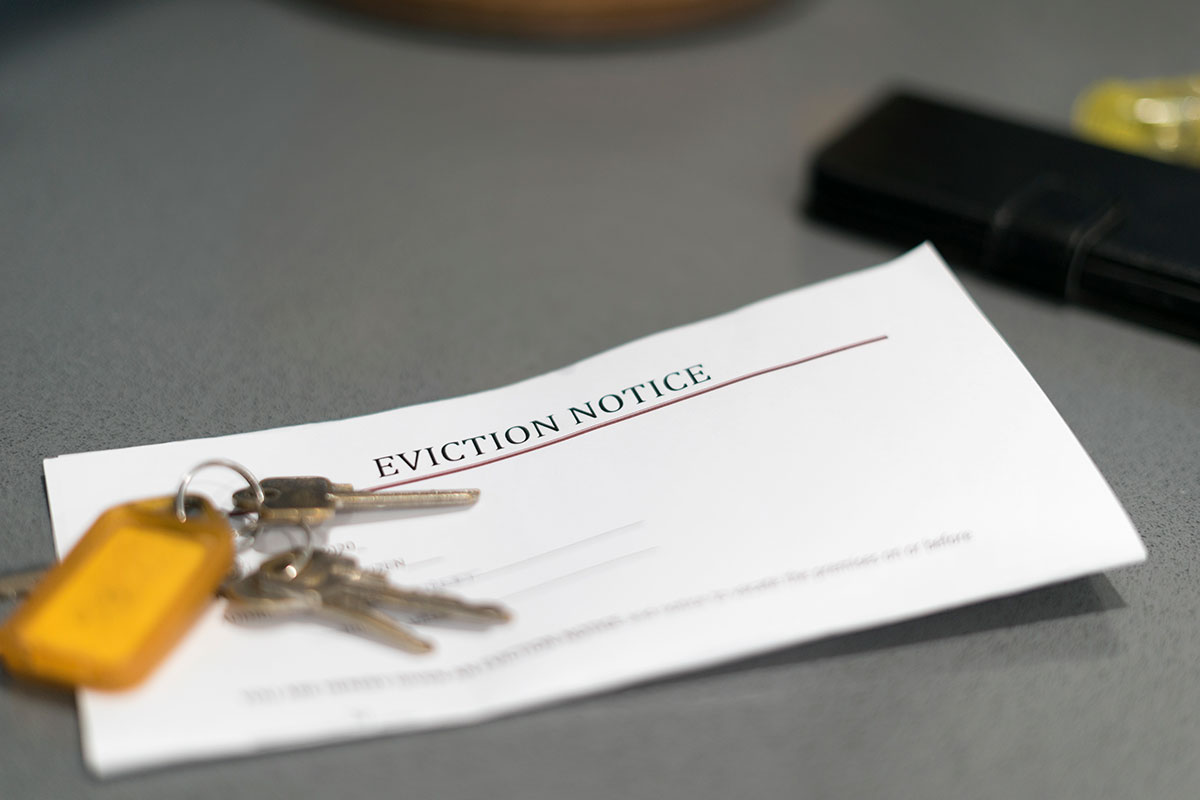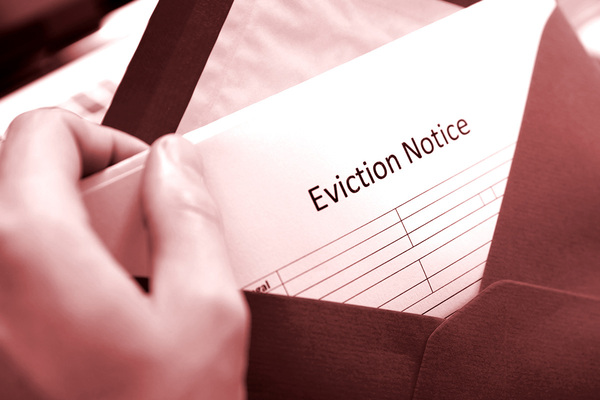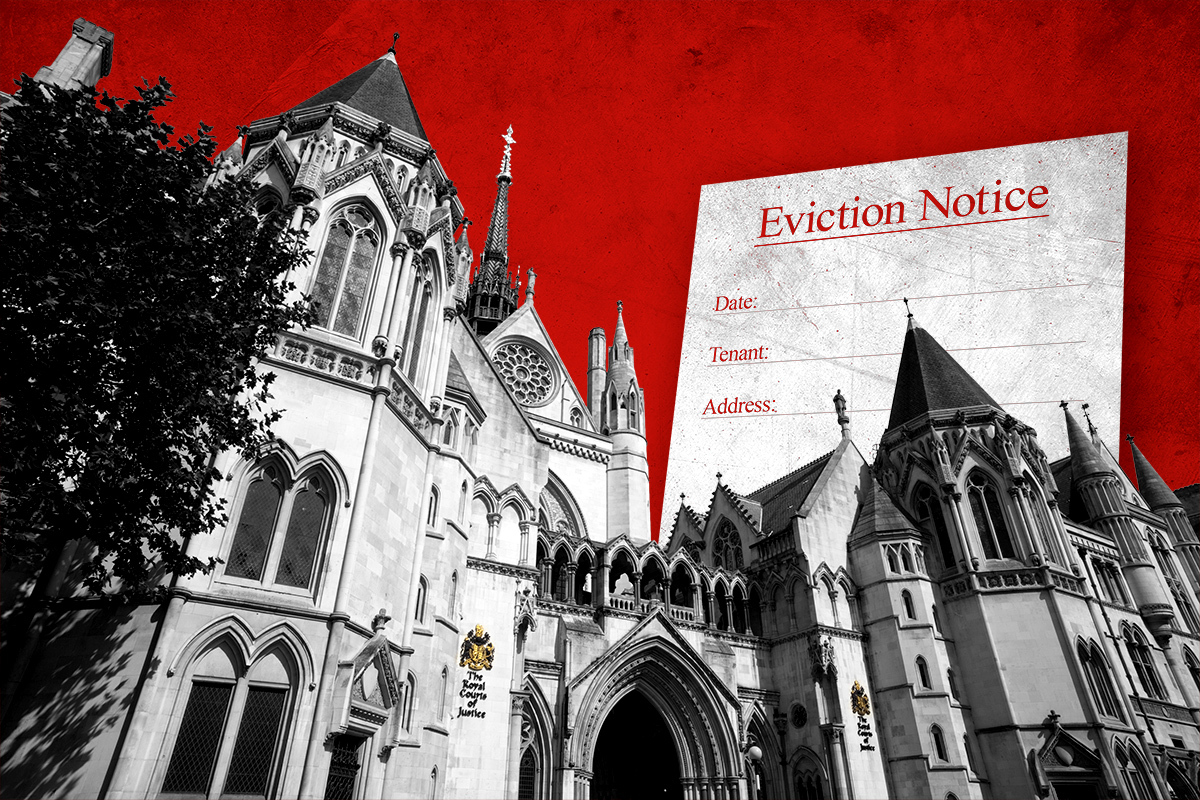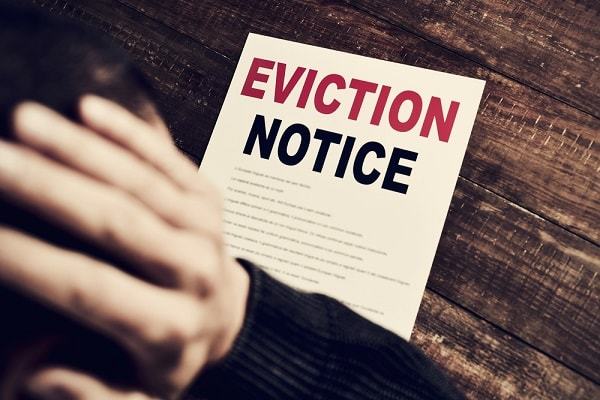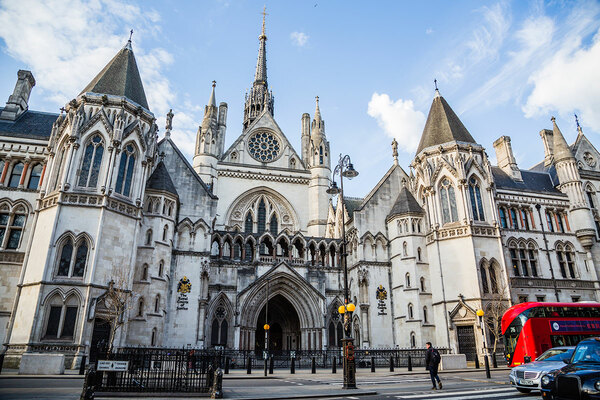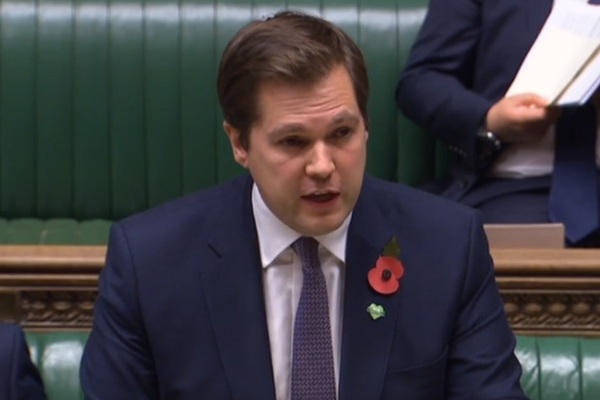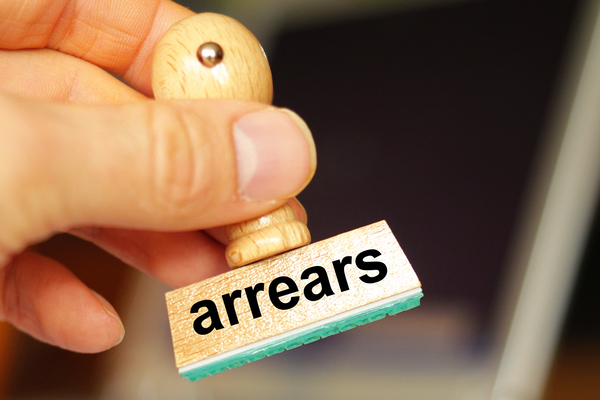You are viewing 1 of your 1 free articles
Evictions ban explainer: have social landlords been ‘seeking possessions’ during lockdown and will this increase when the ban is lifted?
The eviction ban may have been extended by another month but housing associations have been planning for weeks what approaches to take when the eviction moratorium is eventually lifted. Lucie Heath looks at how landlords have been approaching evictions during the coronavirus lockdown and what steps they plan to take. Pictures by Getty
On Friday, the master of the rolls announced that the eviction ban, which was scheduled to end on Sunday, would be extended by a month.
His decision came after a last-minute request by the government to extend the ban from 23 August until 20 September, buying them crucial time to minimise the impact on tenants facing financial hardship as a result of the COVID-19 crisis.
It came just days after the government had insisted that “appropriate measures” had been put in place to protect tenants.
The change of heart came as charities, politicians and campaign groups lobbied the government to extend the ban, warning that hundreds of thousands could be at risk of eviction if it was to end at the weekend.
However before the U-turn, most of the social housing sector was readying itself for the ban lifting, with many landlords drawing up plans for how they would act towards tenants when it was ended.
Ahead of last Friday’s U-turn, Inside Housing asked some of the largest housing associations in the country what their approach has been to evictions during the pandemic and what their plans would be when the courts open for possession hearings again.
*The snap survey was carried out before the announcement that the evictions ban would be extended, meaning that responses below from associations are on the assumption it would be lifted on 23 August.
What does the eviction ban mean for housing associations?
The ban on evictions in England and Wales came in two stages. First, the government introduced the Coronavirus Bill which extended the notice period landlords must give tenants before initiating court proceedings to three months.
After an outcry from campaigners that these measures did not go far enough, the master of the rolls, England’s second most senior judge, announced that possession hearings would be suspended for 90 days. In June, this suspension was initially extended until 23 August. Last week saw it extended further, with possession hearings now banned until 20 September.
In practice, this means that landlords have continued to be able to serve tenants a notice seeking possession (NSP), which informs the recipient of a landlord’s intention to evict for things such as rent arrears and anti-social behaviour. Once the notice period has expired on these, usually two months before the coronavirus lockdown, landlords could file a possession claim with the court. However, under the current ban the court is not processing these claims and will not until the ban is lifted.
The move to pause possession proceedings also means that those cases already in the system before COVID-19 hit are on hold and will remain on hold until 20 September.
How did housing associations evict tenants before the ban?
Housing associations usually have to provide a legal reason for evicting a tenant, unless that person is on an assured shorthold tenancy (often called a starter tenancy) and they can be evicted using a Section 21 no-fault eviction.
The most common eviction grounds used by social landlords tend to be rent arrears or anti-social behaviour.
Ground 8 of Section 8 of the Housing Act 1988 can be used by housing associations to automatically evict tenants who have accrued eight weeks of arrears, however social landlords insist they only evict for arrears as a last resort. For example, one housing association, which wished to remain anonymous, told Inside Housing it only evicts people for rent arrears when a tenant has built up over £1,000 in debt and is not agreeing to a revised payment plan.
What has happened to landlords’ stayed cases?
The 18 housing associations Inside Housing spoke to said they collectively had more than 1,000 eviction cases in the courts when the ban was first introduced in March. The government introduced rules last month which meant landlords that wished to pursue cases already in the system when the ban was introduced, must send a written notice to the court informing it that they would like the case to be reactivated.
Neil Lawlor, partner at Devonshires, explained that it is likely not all of these cases will be reactivated, for example if a tenant has “reigned in their behaviour” during lockdown after being threatened with eviction for anti-social behaviour.
However, he added that in cases where a tenant is continuing to cause a problem, these may be the types of cases associations are most keen to pursue now the courts have reopened. “This is where the landlords could be really keen to push... because if you have people continuing to cause problems then you have ongoing victims,” said Mr Lawlor.
Have housing associations been trying to evict during lockdown?
As previously mentioned, housing associations have still been allowed to serve NSPs during lockdown. The approach and attitude towards using this tool has varied dramatically between housing associations.
While several large landlords, such as Catalyst, told Inside Housing they have not served any NSPs since the ban was implemented, one anonymous housing association said they had served a total of 1,600 NSPs and another said they had served 800. Multiple social landlords said they have recently begun serving NSPs again but were only sending them to tenants who had not engaged throughout the crisis.
This admission from the housing associations comes despite the government’s advice being that landlords should refrain from using NSPs while the ban is in place.
Landlords which were serving NSPs pointed out their use did not mean that tenants were going to be evicted and most cases would not advance past the NSP stage. Multiple housing associations said they found tenants often engaged after being served an NSP and they hoped they could work out payment plans before the time came to file a claim with the court.
Data from the Ministry of Justice shows that some social landlords have been taking it farther than just NSPs and have still been filing claims with the court, albeit at a much reduced rate. Between April and June, 3,022 possession claims were filed in England and Wales, of which 823 were filed by social landlords and 1,317 by private landlords. A further 882 were filed as accelerated possession claims where the type of landlord is unknown. The total number of cases filed marks an 87% reduction on the 24,320 possession cases that were filed in the first three months of this year.
Social landlords struggling to deal with serious anti-social behaviour cases have been using injunctions as a way to get around the possession proceedings ban. Injunctions are used to prevent tenants engaging in certain behaviour by including the power to arrest if certain conditions are broken.
Are there any other changes being proposed with regards to evictions?
Housing secretary Robert Jenrick (picture: Parliament TV)
The government’s change of heart over the date in which the eviction moratorium ends, now gives tenants extra breathing space when it comes to potential eviction proceedings being started against them. However, there were a number of other changes proposed by the government in the way that evictions would be dealt with and prioritised when the ban is lifted next month.
First, the government will introduce six-month notice periods for evictions, apart from in cases of anti-social behaviour and domestic abuse. So if a landlord wants to move tenants out of a property, it will have to give at least six months’ notice. This is an extension from the three-month notice period put in place by the government at the start of lockdown. In normal non-coronavirus times, landlords usually need to give two months’ notice.
It also means that the majority of people who have not already been served notice will not be evicted by landlords via the courts until at least March 2021 – a move the government said will ensure people do not lose their homes during the winter.
The housing secretary said that when cases resume, a system would be put in place where anti-social behaviour and other crimes would be prioritised, alongside situations where landlords have not received rent in over a year.
Will the lifting of the ban see an increase in the number of proceedings being brought forward by social landlords?
The majority of housing associations that responded to Inside Housing said they would not be looking to increase the number of evictions they were pursuing ahead of the ban being lifted, particularly in the case of arrears. Three housing associations said they were planning to seriously limit the number of claims they file until the end of October.
To coincide with the ban being lifted, the National Housing Federation published a new set of pledges from the sector which includes a promise that tenants who have suffered financial hardship due to the crisis will not be evicted for arrears as long as they engage with their landlord over a revised payment plan.
Aside from arrears, legal action will only be pursued in cases of domestic abuse or anti-social behaviour which are putting other residents or communities at risk.
However, there have been calls for social landlords to make stronger commitments when it comes to evictions. Jeinsen Lam, a solicitor at South West London Law Centres, told Inside Housing that a number of law centres in London have written to housing associations asking them not to use Section 21 or Ground 8 of Section 8, as judges have to automatically grant possession in these cases regardless of the individual’s circumstances.
He said a lot of the social landlords that were contacted refused to commit to not using these types of evictions. “They’ve kept their options open and said, ‘look we’re not bad guys, we’re social landlords. We don’t seek to evict people but we reserve the right to use Ground 8 if necessary’,” Mr Lam said.
Combining the current backlog with the number of people who have fallen into debt during the COVID-19 crisis and the number of injunctions being served for anti-social behaviour, it is inevitable there will be a spike in evictions cases. However, this will not necessarily be in the days or weeks directly after the ban is lifted.
Lawyers and landlords are expecting huge delays in the system as courts work through the backlog and try to stage socially distanced hearings. Multiple lawyers have told Inside Housing that it would not be until roughly a month after the ban is lifted that cases start coming through in numbers due to the amount of notice tenants have to be given before a hearing.
The government’s proposed changes around prioritising anti-social or criminal behaviour cases, or those were rent has not been paid for a year, will, in principle, also help to ease the number of cases coming forward. However, how this will work in practice remains to be seen.
What kind of support will social landlords be giving to struggling tenants?
Housing associations have rolled out a number of schemes throughout the coronavirus lockdown to help those who are struggling financially.
Optivo, for example, introduced a residents’ resilience project in April, which is now geared towards helping those who will be affected by the ending of the furlough scheme. Catalyst set up a financial support project, alongside fuel and food voucher systems to help support those who have lost jobs or were placed on furlough. One housing association, which wanted to remain anonymous, said it increased hardship grant awards by 700% between April and July and has substantially increased its grants budget to support this level of funding for the rest of the year.
Almost all the housing associations Inside Housing spoke to pointed out a number of initiatives landlords already have in place to support those who are struggling to pay their rent, including flexible payment options, welfare support and access to grants.
Related stories
